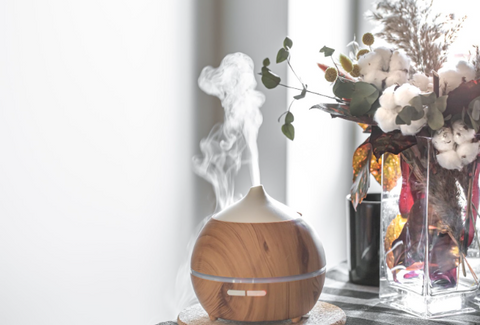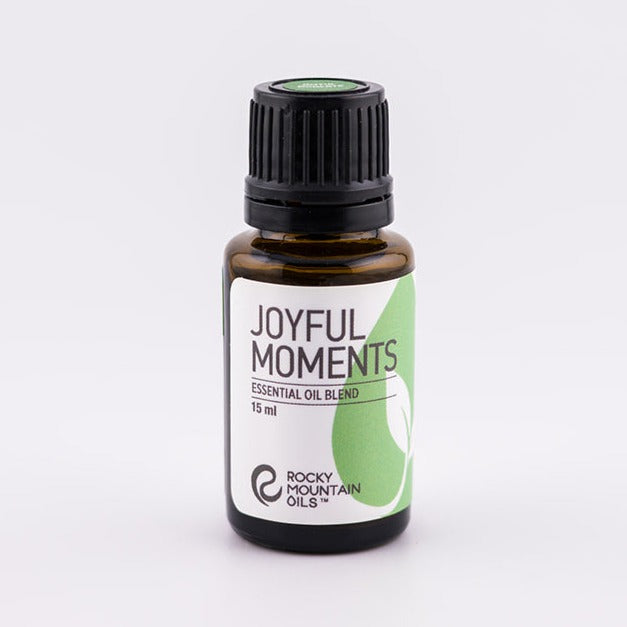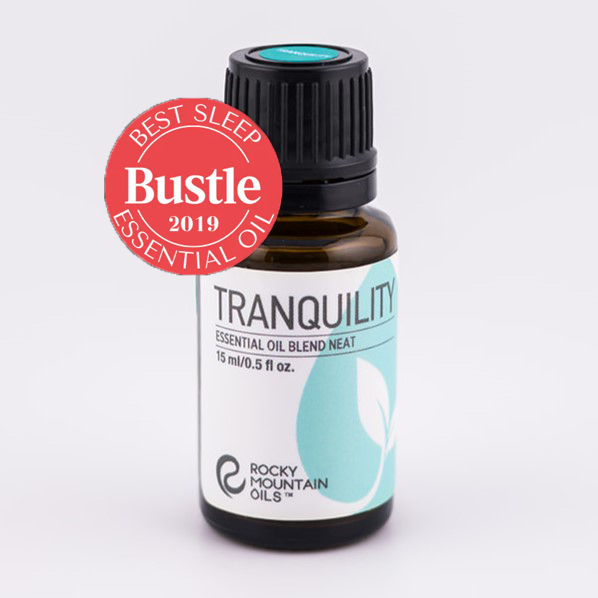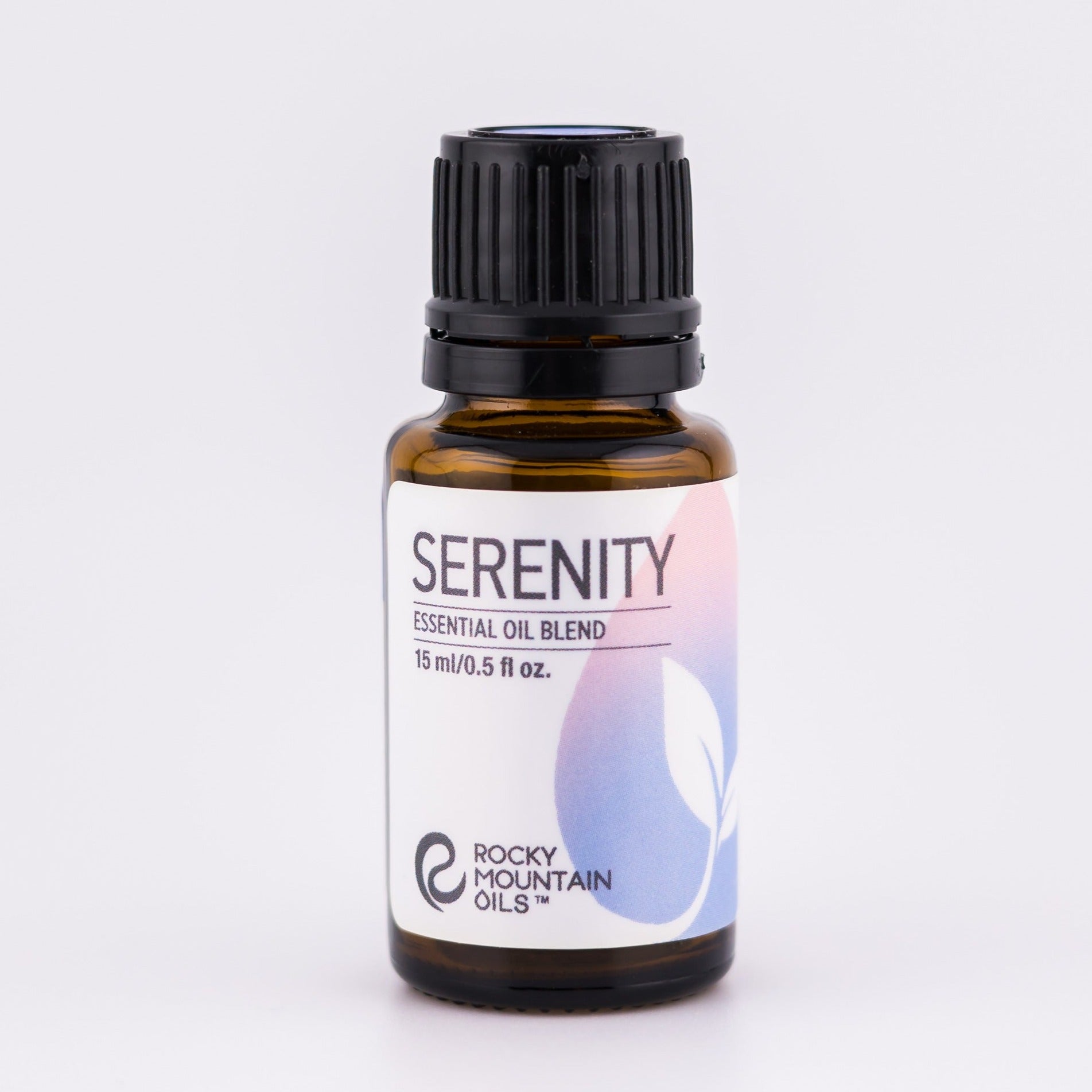Can You Add Essential Oils to a Humidifier? Exploring Aromatic Possibilities
The essence of a home is often captured by the scents that linger in the air. From the sweet smell of vanilla to the crisp essence of eucalyptus, these fragrances can transform any space into a serene haven. But how do we infuse our homes with these scents in a way that's both effective and safe? The answer might be through one of the most underrated household appliances: the humidifier.
Can You Add Essential Oils to a Humidifier?
When it comes to integrating the aromatic world of essential oils with the practical functionality of a humidifier, the question isn't just 'can you' — it's 'how can you do it properly?' Adding essential oils to your humidifier can be a game-changer for enhancing indoor air quality, lifting moods, and potentially providing health benefits. However, it's not as simple as dropping your favorite oil into the water tank.

Understanding Humidifiers
Before diving into essential oils, let's clarify what a humidifier does. It's a device that emits water vapor to increase the humidity levels in your home, combating the dryness that can come with certain climates or seasons. But, not all humidifiers are created equal.
The Science of Humidifiers and Vapor Dissemination
Humidifiers use different methods to disperse moisture into the air. Some, like ultrasonic humidifiers, create a fine mist through vibrations, while others, like evaporative humidifiers, use a fan to blow air through a wet wick filter. This distinction is crucial when considering the addition of essential oils, as the oils may damage certain types of humidifiers or alter the way they disperse moisture.
Types of Humidifiers: An Overview
There's a range of humidifiers: central humidifiers built into home heating and air conditioning systems, evaporative, ultrasonic, and impeller humidifiers. Each type interacts with essential oils differently, with some being more conducive to oils than others.
Essential Oils Basics
Essential oils are concentrated plant extracts obtained through distillation or mechanical methods, such as cold pressing. They carry the plant's essence, including its scent and therapeutic properties.
The Essence of Essential Oils
From lavender to peppermint, each essential oil boasts its unique benefits and uses. They're often used in aromatherapy, a practice that advocates for the therapeutic use of these aromatic compounds to improve physical, emotional, and spiritual well-being.
Extraction and Benefits of Aromatic Oils
Extracting essential oils is an intricate process that impacts their quality and efficacy. The benefits range from promoting relaxation to providing relief from cold and flu symptoms, which makes them a popular choice for use in humidifiers.

Compatibility Matters
Here's where things get a tad technical. You've reached your humidifier and essential oils, but are they a match made in heaven? The answer is it depends.
Essential Oils and Humidifier Materials
Certain essential oils can degrade plastic, which is what many humidifiers are made of. This can lead to leaks and other malfunctions. It's crucial to understand which types of humidifiers are best suited for use with essential oils.
Methods of Adding Essential Oils
If you're set on marrying the functionality of your humidifier with the sensory pleasure of essential oils, there are safe ways to do so.
Direct Addition of Essential Oils to a Humidifier: A Detailed Guide
Adding essential oils directly to the water in a humidifier can enhance your environment with pleasing scents and potential therapeutic benefits. However, this method requires careful consideration and specific steps to ensure safety and effectiveness.
Understanding the Right Type of Humidifier
- Humidifier Compatibility: Not all humidifiers are designed for use with essential oils. Using oils in a humidifier not designed for them can damage the machine and potentially release harmful particles into the air.
- Types of Compatible Humidifiers: Look for humidifiers labeled as compatible with essential oils or those specifically marketed as "aroma" humidifiers. These usually have special compartments or pads for essential oils.
Steps for Direct Addition
- Read the Manual: Always start by reading the manufacturer's instructions for your humidifier. This will provide specific guidance on whether and how to use essential oils with the device.
- Choosing Essential Oils: Use high-quality, pure essential oils. Low-quality oils may contain impurities that could harm the humidifier or affect air quality.
- Adding Oils to Water: If your humidifier is designed for direct oil addition, place a few drops of essential oil into the water tank. The usual recommendation is 3-5 drops per 100ml of water, but this can vary.
- Cleaning Regularly: Essential oils can leave residues that may build up over time. Regular cleaning of the humidifier is crucial to maintain its performance and hygiene.
Cautions and Considerations
- Risk of Overuse: Too much oil can clog the humidifier and create an overpoweringly strong fragrance. Always use the recommended amount.
- Potential Health Concerns: People with allergies, asthma, or respiratory issues should exercise caution. Essential oils in the air can sometimes trigger allergic reactions or respiratory distress.
- Pets and Children: Be aware that some essential oils can be harmful to pets or children. Research the safety of specific oils if you have pets or young children in your home.
- Avoiding Damage: Using oils in a non-compatible humidifier can void warranties and cause irreparable damage to the device.
Regular Maintenance
- Daily Emptying: Empty and dry the humidifier when not in use to prevent mold growth.
- Weekly Cleaning: Clean the humidifier thoroughly once a week to remove oil residues and any mineral buildup from the water.
While adding essential oils directly to a humidifier can create a pleasant and therapeutic environment, it's important to proceed with caution. Only use oils in humidifiers designed for that purpose, follow the manufacturer's guidelines and be mindful of the potential health implications for household members and pets. Regular maintenance of the humidifier is also essential to ensure its longevity and effectiveness.
Alternative Methods: Using Oil Pads and Trays
Some humidifiers come with a separate compartment or tray designed for essential oils. This prevents the oils from contacting the water and protects the device from damage.
Potential Benefits
Inhaling the mist from a humidifier infused with essential oils can do more than just please your olfactory senses. It can contribute to an overall sense of wellness.
Humidifiers and Health: The Role of Essential Oils
Moist air can help alleviate symptoms of colds, allergies, and dry skin. When combined with the therapeutic properties of essential oils, the health benefits can be amplified.
Aromatherapy in the Air: Psychological Benefits
The psychological effects of aromatherapy are well-documented, with certain scents able to calm the mind and elevate mood.
Safety Considerations
As with anything involving health and home appliances, safety comes first. This is doubly important when combining electronics with concentrated oils.
Safety First: Essential Oils and Humidifier Health
To ensure the safe use of essential oils in your humidifier, always follow the manufacturer's guidelines and use oils that are pure and of high quality.
Understanding the Risks: Oil Types and Concentrations
Some essential oils are more potent than others, and their concentrations must be carefully controlled when used in a humidifier to avoid any adverse effects.
Maintenance and Care
Maintaining your humidifier is critical to its longevity, especially with essential oils.
Keeping it Clean: Maintenance of Oil-Enhanced Units
Essential oils can leave residues that may hinder the performance of your humidifier. Regular cleaning is necessary to prevent this.
Cleaning Frequency
- Daily Maintenance: Empty any remaining water and wipe down the interior of the humidifier daily. This prevents oil residues from settling and hardening.
- Weekly Deep Cleaning: Perform a more thorough cleaning weekly. This involves disassembling the unit (as per the manufacturer's instructions) and cleaning all parts exposed to water and oil.
Cleaning Process
- Disassemble the Humidifier: Carefully take apart your humidifier, removing any removable parts like the water tank, filter, and mist nozzle.
- Use the Right Cleaning Agents: For most humidifiers, a mix of warm water and mild dish soap is adequate. For tougher residues, white vinegar can be effective. Avoid harsh chemicals that can damage the humidifier or leave harmful residues.
- Soak and Scrub: Soak removable parts in your cleaning solution. Use a soft brush or cloth to gently scrub away any residues.
- Rinse Thoroughly: After cleaning, rinse all parts with clean water to remove any soap or vinegar.
- Dry Completely: Ensure all components are completely dry before reassembling to prevent mold growth.
- Reassemble and Test: Put your humidifier back together and run it briefly to ensure it's working properly.
Regular cleaning and maintenance of oil-enhanced humidifiers are vital to their performance and the health of the indoor environment. By following a consistent cleaning schedule and using proper techniques, you can enjoy the benefits of aromatherapy without compromising the functionality of your humidifier or the quality of your indoor air.
Top Essential Oils for Your Humidifier
Certain essential oils are more conducive to vaporization and can provide more significant benefits when used in a humidifier.
Ideal Essential Oils for Humidifiers
- Lavender: Known for its calming properties, lavender oil can help promote relaxation and better sleep. Its gentle scent is ideal for creating a peaceful atmosphere.
- Eucalyptus: With its fresh and invigorating scent, eucalyptus oil is great for respiratory health. It can help clear nasal passages and is often used for its decongestant properties.
- Lemon: Lemon oil has a bright, uplifting aroma. It's known for its purifying properties and can help refresh and energize a room.
- Peppermint: Invigorating and refreshing, peppermint oil can help improve concentration and energy levels. It’s also known for its ability to help with digestive and respiratory issues.
- Tea Tree: This oil is renowned for its antimicrobial properties. Using tea tree oil in a humidifier can help purify the air and may assist in reducing airborne pathogens.
- Chamomile: With its soothing properties, chamomile oil can create a relaxing and calming environment, perfect for stress relief.
- Rosemary: Known to help with focus and memory, rosemary oil has a stimulating effect and can be great for a home office or study area.
Considerations for Usage
- Compatibility with Humidifier: Ensure the oils are compatible with your specific humidifier model.
- Quality of Oils: Use high-quality, pure essential oils for the best results and to avoid potential toxins.
- Dilution and Dosage: Follow the manufacturer’s recommendations for dilution and quantity to prevent damage to the humidifier and to ensure safe dispersion in the air.
- Combining Scents: Experiment with blending oils to create custom scents that cater to your preferences and needs.

What happens if you put essential oils in a humidifier?
Putting essential oils in a humidifier can have both benefits and drawbacks. On the positive side, it can disperse the aroma of the essential oil throughout the room, creating a pleasant and therapeutic atmosphere.
However, it's essential to be cautious and use the humidifier properly. Some potential issues include clogging the humidifier if not diluted properly, potentially damaging the humidifier over time, and the risk of inhaling too much concentrated essential oil, which can be harmful.
To use essential oils in a humidifier safely, always check the manufacturer's guidelines, dilute the oil as recommended, and avoid leaving the humidifier running continuously for extended periods. It's generally safer to use a diffuser designed specifically for essential oils to ensure proper dispersion and prevent potential damage to your humidifier.
What can I put in my humidifier to make it smell good?
To make your humidifier emit a pleasant aroma, you can add a few drops of essential oils to the water reservoir. Essential oils come in various scents like lavender, eucalyptus, citrus, and more, allowing you to customize the fragrance to your liking.
Be cautious not to use too much oil, as it can clog the humidifier or make the air too heavy with fragrance. Typically, just a few drops of essential oil should suffice to create a pleasing scent while humidifying the air in your space.
Can I put scent in my humidifier?
It's generally not recommended to put scented oils or fragrances directly into a humidifier's water tank. Doing so can potentially damage the humidifier or lead to clogs. Instead, many humidifier manufacturers advise using distilled water in the humidifier to prevent mineral buildup and maintain its efficiency.
To add fragrance to the air, consider using an essential oil diffuser or a separate aromatherapy diffuser designed specifically for dispersing scents safely into the air without harming your humidifier.

Can I use humidifier as an oil diffuser?
Yes, you can use a humidifier as an oil diffuser in many cases. Some humidifiers are designed with a separate compartment or tray for essential oils, allowing them to disperse alongside the moisture in the air.
However, it's important to ensure that your specific humidifier is compatible with essential oils and has the necessary features for safe diffusion. Using essential oils in a humidifier not designed for this purpose may damage the device or affect its performance, so always check the manufacturer's instructions and recommendations before using essential oils in your humidifier.
FAQs
Here, we answer the frequently asked question: Can you add essential oils to a humidifier?
Q: How many drops of essential oil should I add to my humidifier?
A: Start with 3-5 drops. You can adjust depending on the size of the room and the manufacturer's recommendations.
Q: Can I use any essential oil in my humidifier?
A: Only use essential oils that are safe for air diffusion and compatible with your type of humidifier.
Q: How often should I clean my humidifier using essential oils?
A: Clean it at least once a week or more frequently if you use it daily or notice any residue buildup.
Q: Can essential oils damage my humidifier?
A: Essential oils, significantly when misused, can cause damage to the internal components of a humidifier. It's important to use oils sparingly and choose a humidifier designed for use with them.
Q: How can I tell if an essential oil is good quality?
A: A good quality essential oil is typically certified pure, free from additives, fillers, and synthetic ingredients. Trustworthy brands provide transparency about their sourcing and distillation processes.
Q: Is it safe to breathe in essential oils from a humidifier?
A: Breathing in essential oils from a humidifier is generally safe for most people when high-quality oils are used in the proper concentration. However, individuals with specific allergies or asthma should consult a healthcare provider first.
Conclusion
In conclusion, integrating essential oils with your humidifier can be a delightful addition to your home. With the right approach and precautions, you can enjoy the myriad benefits that this combination has to offer.




